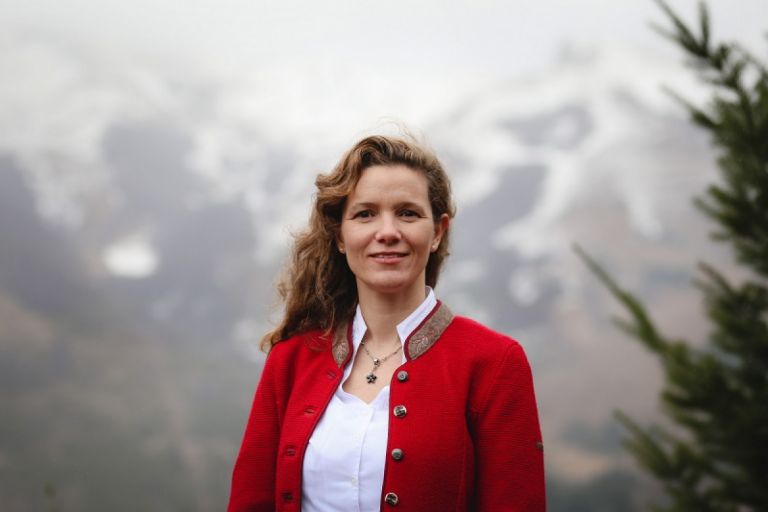Yanina Fasano, Ph.D. in Physics, has been honored with the George Forster Research Award, an award given to professionals with distinguished careers in science. Yanina is a teacher and graduated from the BA and Ph.D. in Physics from the Instituto Balseiro
“It was a wonderful surprise. It is an appreciation for the work that I have done during my career with so many other people,” Yanina reflected and added that in addition to the immense satisfaction, the recognition means an opportunity to broaden the horizon of her research through different techniques in Germany.
The Foundation awards several awards to stimulate continuity in the scientific training of persons selected by a committee. Nominations come from professors working in Germany, as well as letters from experts required to support the proposals.
There are ten people selected from sciences from emerging countries. One criterion is the potential multiplier effect of the scientists who select them.
Dr. Fasano is an international authority on vortex and spectroscopic properties of superconducting materials. It has made important contributions to the use of superconducting vortices as a model system for exploring the structural properties of exotic matter states,” they noted in the award nomination.
Yanina was always clear that she would study science. At first he questioned astronomy or physics. Finally lean on the latter. He also holds a master’s degree in philosophy and history of science. “I’m passionate about science, it’s another level of fun,” he commented on the “GPS” program on El Cordillerano Radio (93.7).
“Nature surprises us, it has so many mysteries that we still don’t know. Even the answers to the simplest things are reviewed all the time,” he said and stressed that he really loves his work. Its motto is not to be satisfied with an answer. “It has to be improved, it’s a way of thinking about life.”
Yanina was born in Rosario, although she lived in San Lorenzo until she was twenty. The step towards the Balseiro Institute was considered natural because when he found out that they were offering scholarships, it was a perfect move. Expenses of studying in Rosario forced her to work. Always leaning towards experimental physics, he said, “My teachers told me that in Balseiro there are laboratories with a lot of equipment. It attracted me very much.”
At the age of twenty, he took an entrance exam and adapting to a new city was not a problem. “We studied all day,” he said, “from 8.30 to 19. There was no time for other things.”
Fasano will travel to Germany to develop a science project on the properties of superconducting materials, an area of great interest with its potential applications in quantum computing.
Getting to know a woman always invites us to review the complications that she had to face in order to achieve her career goals. Yanina admits that she was very lucky that she and her partner, who is also a physicist, determined that the progress would be equal. “I know that not all women have the same experience,” she said.
Similarly, in practice, there are objective difficulties because, for example, in pregnancy a woman puts her body in it. “And even if you had a good birth, you can have not so minor consequences because the pregnancy leaves you. And the instinct to wake up at night and think about breastfeeding,” Yanina said, adding that this reality can delay your steps in the race.
“My experience is still very good,” he acknowledges and highlights that his partner grew up in a family where it was always clear it was important to share tasks. For this reason, the role of women for Yanina is fundamental when she is educating her male children.
At this point in his life, he decided to reduce his lab hours and devote them to his children. “You have to be happy with those decisions and take charge.”

“Social media evangelist. Student. Reader. Troublemaker. Typical introvert.”

:quality(85)/cloudfront-us-east-1.images.arcpublishing.com/infobae/TEQF6EONZRFGLLLDIDD4L2O4EE.jpg)

:quality(75)/cloudfront-us-east-1.images.arcpublishing.com/elcomercio/XU32LRAEZFDDPNVHLFU3CKVBYY.jpg)



More Stories
Venezuela ranks fourth in female leadership in science and technology in Latin America
In Portuguesa and Sucre they explore the wonderful world of science
The university court overturns the expulsion of two teachers and a chemical sciences student